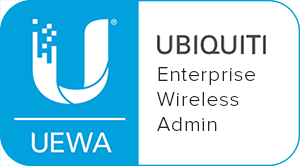IP Voice Is Great – Ensure VoIP Calls Are Great Too
Voice over Internet Protocol (VoIP) phone services are efficient for workers and businesses to manage voice calls anywhere. VoIP is now a popular alternative to traditional telephone systems. VoIP uses Internet Protocol (IP) to connect and communicate with callers. With sufficient bandwidth, you can pretty much contact anyone via this type of voice service. Besides making / receiving calls over the Internet, a VoIP phone system can also provide other features. These include call recording, call forwarding, voicemail, etc. Overall, a VoIP phone system is a significant upgrade compared to an analog phone system. However, even with these advantages, a VoIP phone system may experience sound issues from time to time.
When these issues are unresolved, they can cause complications on calls with clients, eventually affecting customer satisfaction. Fortunately, below are some steps to enhance VoIP calling experience. Use these five key tips to improve the quality of your VoIP calls and provide a great customer experience, every single time.
1. Invest In CCaaS solutions
A VoIP phone system is certainly more flexible than traditional landline calls. However, it can only perform its promised benefits when used properly. One way to enhance VoIP calls is by engaging a Contact Center as a Service (CCaaS) company, such as Odigo or other CCaaS solutions. Instead of managing VoIP business calls on your own, CCaaS outsources to help you provide better customer service to your clients. One major benefits of engaging such a company includes their cloud-based tech, which offers an open platform which integrates easily with existing systems.
2. Utilize A VoIP Prioritized Router
A common issue which affects VoIP call quality is running ALL traffic over a single router. Using the same router for all IP based traffic (voice, data, etc), risks the Quality of Service (QoS) of calls. Prioritize VoIP calls by investing in a business router that can handle VoIP usage. When choosing a router, opt for a VoIP optimized one, suitable for VoIP traffic. Consider selecting a router with extra features like a Virtual LAN (VLAN) or Session Initiation Protocol (SIP) to improve voice packet reliability. More advanced managed routers or services such as MPLS, can also go a long way to prioritize VoIP traffic.
3. Use High Quality Headsets
Poor sound quality during calls is a turn-off for clients and frustrating for VoIP users. These may be caused by simple hardware related issues. Cheap headsets can affect VoIP call quality. Headsets with thin or poorly insulated cables can impact audio clarity. Consider investing in higher quality headsets. You don’t necessarily need a top shelf model, but take time researching for better headset options. These may have noise cancelling features, bluetooth compatibility or cables with solid insulation. (Check bluetooth compatible phones and headsets recommended by Fastmetrics).
4. Replace WiFi with Digital Enhanced Cordless Telecommunications
Most Wi-Fi connections will suffice for using the VoIP phone systems. But WiFi is also vulnerable to interference, especially when shared across a large area or when many devices are trying to connect to the same WiFi access point. This affects the signal strength and therefore VoIP. When you have “slow” internet, you’ll also likely experience calls which chop in and out, or delays with VoIP calls.
Digital Enhanced Cordless Telecommunication (DECT) phones aim to solve the above issue, especially when making calls while away from your desk. DECT is a digital wireless technology that can be used for personal and business landline telephony. It has its own radio frequency and can operate long-range calls, for better call quality with less risk of call interruptions.
5. Check Bandwidth Usage
VoIP delivers data in packets, over a network. But even with stable internet connections, voice packets may not get through efficiently. Your network may experiencing congestion or not be optimized to support multiple users. As a result, both sides of a VoIP call may experience long periods of silence or robotic voices. To ensure high quality VoIP calls and avoid packet loss, consider increasing your bandwidth. Sufficient bandwidth helps handle high volumes of users and reduce latency, without affecting calls. The FCC states that a typical VoIP call uses between 5 – 25 Mbps of bandwidth. So if you have multiple callers using VoIP at the same time, allow enough bandwidth to cover that. Tip: if your business is running a VoIP based call center, Dedicated Internet Access (DIA) with enough bandwidth will be necessary for VoIP to function at peak quality.
When using a VoIP phone system for business, ensure you keep these tips in mind to maintain the superior quality of your VoIP calls and boost customer satisfaction. Improving VoIP call quality is a worthwhile investment as it improves communication, which is vital for any business.
About Fastmetrics, Inc. Building & Business ISP
Since 2002, Fastmetrics is the Bay Area’s only dedicated business ISP. We provide telecommunication services in California and the San Francisco Bay Area. Reliable service – backed by better live and local support. From install to 24-7 proactive monitoring, get treated like a VIP customer. Not a number by a faceless call center. We specialize in managed business internet and phones, dedicated high speed business fiber internet, business WiFi, SIP voice solutions / UCaaS and managed network services. We are a Microsoft and Cisco Meraki Partner. Our team are Certified Cisco Specialists, Ubiquiti Enterprise Wireless Accredited and Polycom Authorized Solution Advisors. We take care of your business network, so you can focus on growth.









